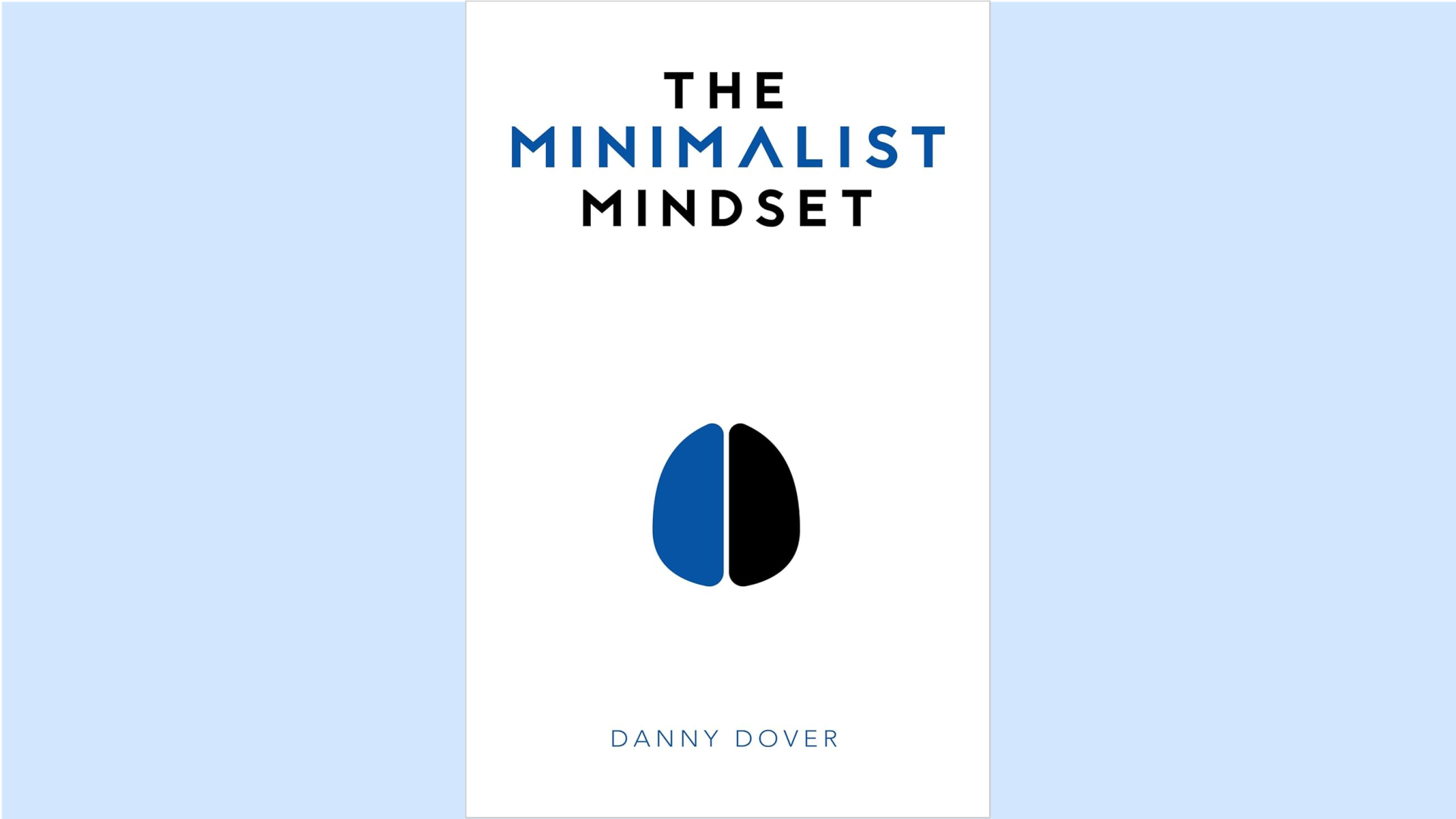Summary: The Minimalist Mindset by Danny Dover

In today’s fast-paced world, minimalism offers a refreshing alternative to the constant push for more. Danny Dover's insightful book The Minimalist Mindset: The Practical Path to Making Your Passions a Priority and Retaking Your Freedom provides a comprehensive guide to a minimalist lifestyle. This blog post delves into the key concepts from the book, exploring how minimalism can lead to a more intentional and fulfilling life.
What is Minimalism?
At its core, minimalism is about stripping away the excess to make room for what truly matters. Focusing on quality over quantity regarding possessions and experiences is a deliberate choice. As Dover explains, minimalism isn’t just about owning fewer things; it’s about creating space for personal growth and passion.
“Minimalism is the intentional promotion of the things we most value and the removal of anything that distracts us from it.”
The Benefits of a Minimalist Lifestyle
The advantages of minimalism are manifold. By reducing clutter, individuals can decrease their stress levels and increase their ability to focus. Financial freedom is another significant benefit, as minimalism encourages mindful spending. Dover emphasizes that minimalism allows individuals to invest their time and resources in what they are genuinely passionate about, leading to a more purposeful life.
“When you reduce what you own, you gain so much more—freedom, clarity, and the space to pursue your passions.”
Steps to Adopt a Minimalist Mindset
Adopting minimalism begins with a thorough evaluation of one’s life. Dover outlines several steps:
1. Assess Your Possessions: Determine what you truly need and what can be discarded or donated.
Example: A reader may find that their wardrobe contains many items they never wear. By donating these clothes, they can reduce clutter and make it easier to find and appreciate the pieces they love.
2. Evaluate Commitments: Focus on activities that align with your goals and values.
Example: Someone might realize they are overcommitted to social events and decide to cut back, allowing more time for family and personal projects.
3. Streamline Relationships: Nurture connections that are positive and supportive.
Example: By recognizing which relationships are draining and uplifting, people can spend more time with those who positively impact their lives.
Prioritizing Your Passions
Minimalists find it easier to identify and pursue their passions with fewer distractions. Dover provides practical advice on allocating more time and energy to activities that bring joy and fulfillment. He underscores the importance of setting clear priorities and establishing boundaries to protect one’s time. For example, a passionate writer may find that cutting television time frees up weekly hours to dedicate to their writing projects. “By eliminating the unnecessary, you make space for what truly matters.”
Overcoming Common Challenges
Transitioning to a minimalist lifestyle can be challenging. Emotional attachments to possessions, societal expectations, and the fear of missing out are common hurdles. Dover suggests practical strategies such as practicing mindfulness, seeking support from like-minded communities, and continuously realigning with one’s values to overcome these challenges. Example: Joining a minimalist group can provide support and encouragement, making it easier to let go of unnecessary items and habits.
“The journey to minimalism is filled with obstacles, but each one you overcome brings you closer to freedom.”
Maintaining Minimalism for the Long Haul
Sustaining minimalism requires ongoing effort. Regular decluttering sessions, periodic reflections on personal goals, and a steadfast commitment to one’s values are essential. Dover advises setting aside time for self-assessment to ensure one’s lifestyle remains aligned with minimalist principles. Example: Scheduling a monthly review to assess one’s possessions and commitments can help maintain a minimalist lifestyle over the long term. “Minimalism is not a destination but a continuous journey of self-discovery and realignment.”

Author Biography: Danny Dover
In 2010, Danny Dover made a bold decision that would transform his life. Frustrated with merely hearing about others’ exciting adventures, he set a personal deadline of May 25, 2017, to complete his Life List—a compilation of more than 150 life goals. To keep this deadline at the forefront of his mind, he tattooed it on his buttocks and dedicated himself entirely to achieving these ambitions. This journey led him to inadvertently adopt a minimalist lifestyle, a shift that proved essential in providing the focus and clarity needed to live more meaningfully. This experience became the foundation of his later work, The Minimalist Mindset.
As of 2017, Dover has accomplished every goal on his Life List. These goals were extraordinary, including living alone in the wilderness for a month, traveling to nearly 100 countries, mountain climbing in Antarctica, and becoming a best-selling author with his book Search Engine Optimization Secrets. These experiences taught him invaluable lessons about simplicity, purpose, and fulfillment.
Beyond ticking off impressive feats from his list, Dover’s journey fostered deep, meaningful relationships and a vibrant community. He writes for a dedicated audience on his website, Life Listed, where he shares insights from his adventures and the principles of minimalism that helped him transform his life. His writings aim to inspire others to pursue their passions and live intentionally.
Dover’s unique approach to life and minimalism continues to resonate with many. He is a sought-after speaker who shares his story and strategies for living a more focused, passionate, and minimalist life. His work emphasizes minimalism, which isn’t just about reducing possessions but enriching life by making space for what truly matters.
Themes from the Book
Focus on What Truly Matters
The core principle of minimalism is to prioritize what is genuinely essential in life. This includes relationships, personal growth, and meaningful experiences over material possessions.
Reducing Excess
Minimalism involves decluttering physical, digital, and mental spaces to eliminate distractions and promote a more organized and purposeful life.
Finding Joy in Simplicity
By simplifying one’s life, minimalists can find greater joy and contentment. Dover emphasizes that less is often more, and true happiness comes from appreciating the simple things.
Cultivating Meaningful Experiences
Minimalists prioritize experiences over possessions. This shift in focus leads to more prosperous, more fulfilling lives filled with memorable moments rather than material goods.
Digital Minimalism
Managing digital distractions is crucial in today’s hyper-connected world. Dover advocates mindful technology use, limiting social media consumption, and focusing on meaningful online interactions.
Financial Freedom
Minimalist principles naturally lead to better financial health by reducing unnecessary spending and avoiding consumerist traps. This results in less financial stress and more resources to invest in meaningful experiences.
Mental and Emotional Clarity
Minimalism promotes mental clarity by reducing emotional attachments to material possessions and emphasizing mindfulness practices. This clarity allows individuals to focus on what truly matters in their lives.
Enhanced Social Connections
Minimalism encourages more profound, meaningful social connections by focusing on quality over quantity in relationships. Setting boundaries and being intentional about social interactions leads to more fulfilling connections.
Sustainability of Minimalism
Maintaining a minimalist lifestyle requires ongoing effort and adaptability. Dover offers strategies for sustaining minimalism through regular self-assessment, decluttering, and aligning with personal values.
Checklist for Adopting a Minimalist Mindset
Evaluate Possessions
- Identify essential items and those that are not.
- Donate or sell items that no longer serve a purpose.
- Example: Clearing out a cluttered garage by selling unused tools and equipment.
Simplify Commitments
- List all current commitments and evaluate their importance.
- Eliminate unfulfilling relationships.
- Example: Spending more time with family and friends who provide emotional support and encouragement.
Mindful Spending
- Track spending habits and identify areas for reduction.
- Focus on purchasing only what adds value to your life.
- Example: Creating a budget prioritizes experiences, like travel or hobbies, over material goods.
Regular Reflection
- Set aside time for regular self-assessment and decluttering.
- Revisit and adjust goals to stay aligned with minimalist values.
- Example: Quarterly personal and professional goals reviews to ensure alignment with minimalist principles.
